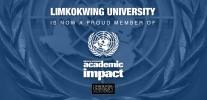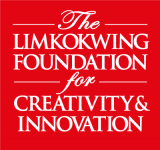Doctor of Philosophy (PhD) Information Systems
LIMKOKWING GRADUATE SCHOOL (R2/480/8/0025)(02/28)(A10543)
The PhD Information Systems provides Doctoral candidates with theoretical knowledge and methodological skills to enable them to become productive researchers. Through a combination of coursework, research seminars, and mentored research, Candidates enrolled in PhD Information Systems study problems that practicing IS professionals and manager’s face; as they design, use, and apply information systems and technologies to solve business problems.
Candidates also acquire breadth of knowledge in the range of issues that define the field of IS, as well as in-depth expertise in an area of their choice.
Objectives
The objectives of the course are:
- To provide students with fundamental knowledge about the various facets of information systems and operations among others
- To produce high quality doctorate candidates with advanced skills in teaching, research, managerial, entrepreneurial, strategic knowledge and skills necessary for leading and managing all facets of contemporary organizations
- To provide each candidate the expertise and skills necessary to be an effective educator or practitioner in Information Systems
- To produce researchers who can advance Information Systems theory and practice and enhance the contributions that business can make to the larger community
- To produce graduates with advanced capabilities in leadership and managing change. Graduates will be able to examine any formal organization and discern its strengths, weaknesses, opportunities and threats. In turn, they will be able to make assessments and prescriptions accordingly
- To advance the long term viability of candidates employer organizations through the candidates high level intellectual contributions and innovative problem solving abilities
- To provide for considerable personal development such that the PhD graduates achieves a greater level of effectiveness as a professional practitioner, educator or manager. Upon graduation , participants will have developed a portfolio of personal , transferable competencies appropriate for their planned and projected career objectives as a senior manager, educator and entrepreneur
- To engender an enjoyable educational experience responsive to the rapid rate of technological , organizational and global changes shaping modern day organizations
- To accomplish the country’s objectives of developing professionals and managers with PhD doctoral qualifications
- To facilitate in depth studies of particular aspects of information systems research
- To improve professional practice through the application of research and case methodologies to information systems problems and issues
Learning Outcomes
At the end of this programme, students will be able to:
- Explain and apply a range of quantitative and qualitative research methods frequently used in research to solve current information systems problems
- Construct research questions that can be examined empirically following the methods of social sciences
- Demonstrate an understanding of the state-of-the-art knowledge in the field of students research
- Demonstrate independent and critical thinking ability and appreciate the ethical issues and concerns relevant to the discipline
- Generate new and readily applicable knowledge in a chosen area of information systems typically relevant to their host organizations and their own career objectives, leading to an improved understanding of how to lead and manage an organization effectively in a global and rapidly changing environment
- Appraise and select innovative and creative solutions to management problems and opportunities
- Apply relevant theoretical knowledge to contemporary information system problems
- Critique contemporary organizational practice in light of relevant theory
- Assess information systems research studies in order to rate their quality and applicability in improving the effective handling of organizational problems
- Manage behavioral , policy and strategic issues to improve the effectiveness of their own organizations
- Identify, analyze and evaluate internal and external environmental influences on organizations in order to develop strategic plans via use of Information Systems for the management of change and the development of their organizations
- Compose superior written reports and skills relevant to business organizations
Target Audience
- Academicians, Researchers in IS industry, Entrepreneurs in IS Industry, IS Managers, IS Development Professionals, IS Consultants
Show Programme Structure
| 1st Level |
| Advanced Research Methodologies |
| Advanced Quantitative Methods |




















